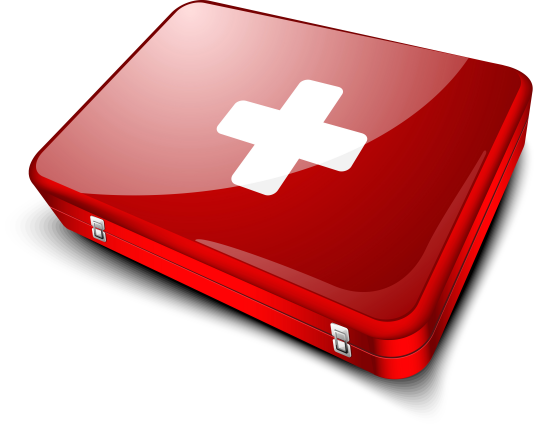At Safe Food Training our focus is usually on keeping your food safe and food manager certification in Minnesota, but from time to time, we like to provide useful information on how to keep your employees safe when on the job. Hopefully, you do everything that you can to prevent on-the-job accidents, but there are many hazards in the food service industry, so food safety managers need to make sure that your first aid kit is fully stocked and handy in case of an on-the-job incident.
Background On Why Food Safety Managers Need First Aid Kits In Their Kitchen
According to The US Bureau of Labor Statistics: Private industry workers in full-service restaurants incurred 93,800 nonfatal injuries and illnesses in 2019. About one-third of these cases required at least one day away from work. Another source, Restaurant Technologies’ “Kitchen Safety 101: How to Prevent Costly Restaurant Injuries” reveals the four most common injuries in commercial kitchens are:
- Cuts, lacerations, and punctures
- Slips and falls
- Sprains and strains
- Burns and scalds
Items Food Safety Managers Should Include In A Kitchen First Aid Kit
First aid kits are for first aid! They should not be stocked for long-term care. If there is any question that the wound or trauma is anything more than a minor injury, the injured person should be encouraged to seek professional care immediately.
Whenever there is a minor incident in the kitchen, the first place food safety managers or employees look for supplies is the first aid kit. Here are some items that we feel are essential to have on hand in the event of a minor mishap.
- Disposable medical gloves
- Multiple styles and sizes of Band-Aids/bandages
- Individual use antiseptic wipes
- Sterile gauze pads/dressings
- Various sizes of elastic compression bandages
While this list is far from complete, these five items will come in handy for situations that commonly occur in commercial kitchens. To protect the injured person as well as the caregiver, various sizes of medical-grade gloves should be available and worn before any contact is made.
We do recommend that you have nearly every style of Band-Aid available for your staff. With sharp knives and utensils in use in every kitchen, employees will inevitably cut themselves from time to time, and they’ll need access to the appropriate bandage.
With industrial steamers, ovens, and deep fryers posing a constant burn threat, sterile gauze pads must be stocked in your first aid kit to clean the wound in addition to self-adherent cohesive bandages to hold protective sterile dressings in place.
Finally, stocking different-sized elastic compression bandages to help support sprains and strains is a great idea. Food safety managers can alternate these first aid items with ice packs to control swelling at the site of a soft tissue injury.
Food safety managers, what’s in your first aid kits?



